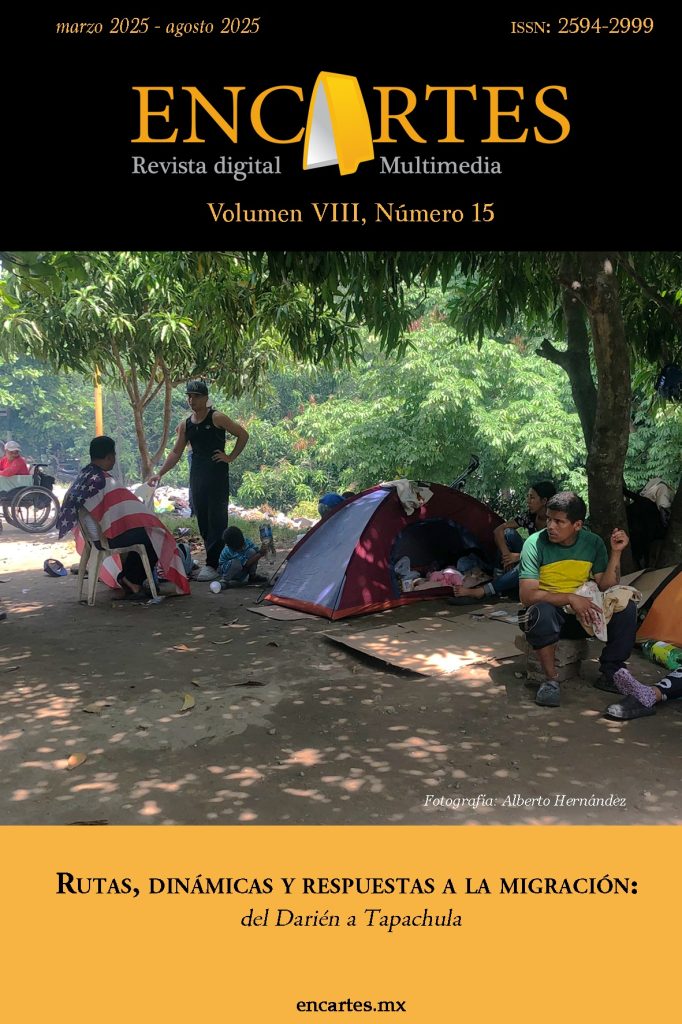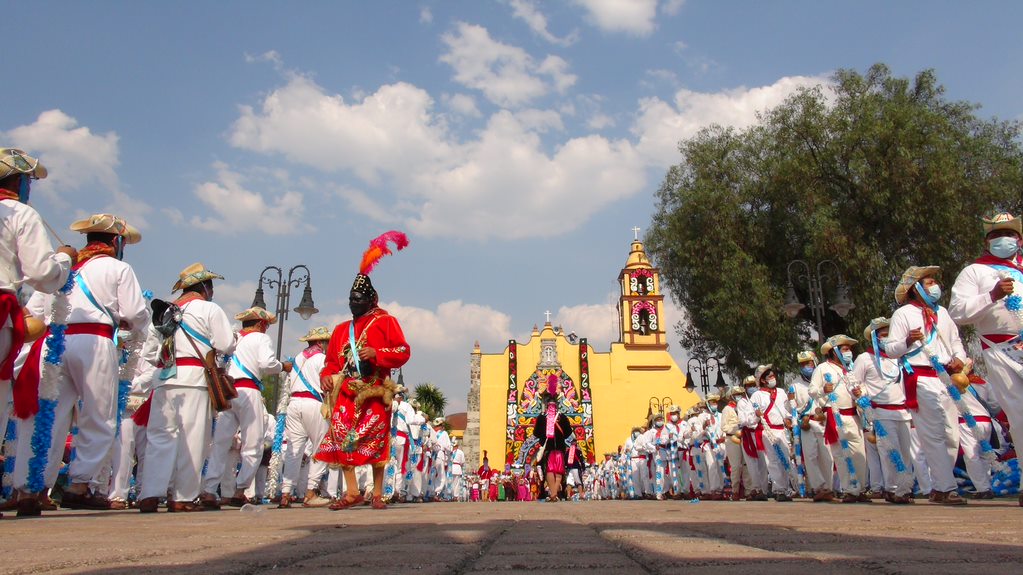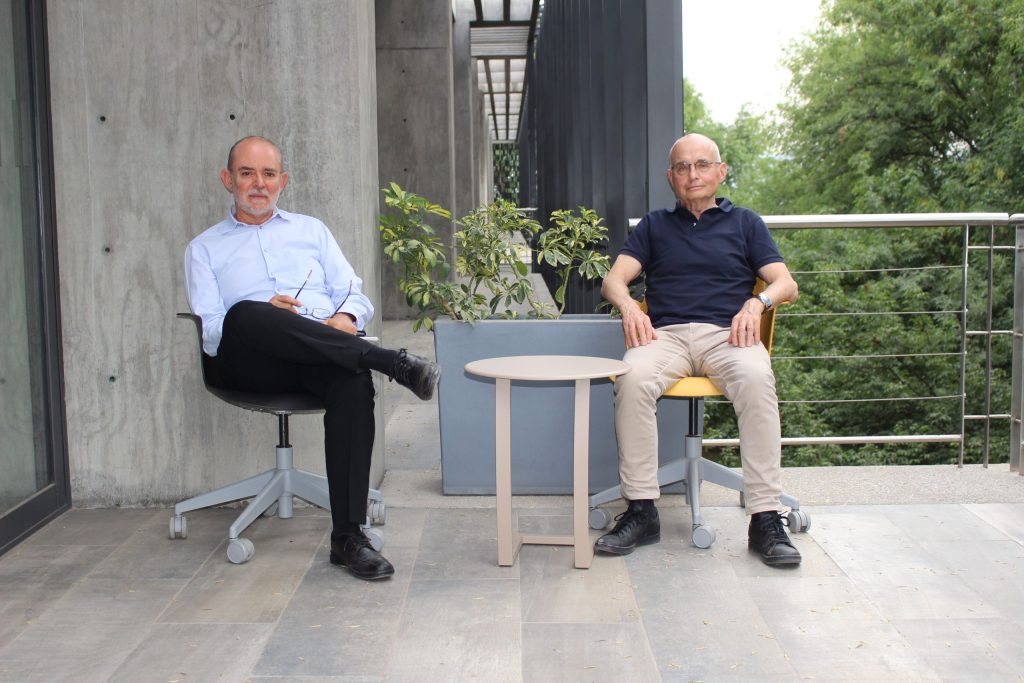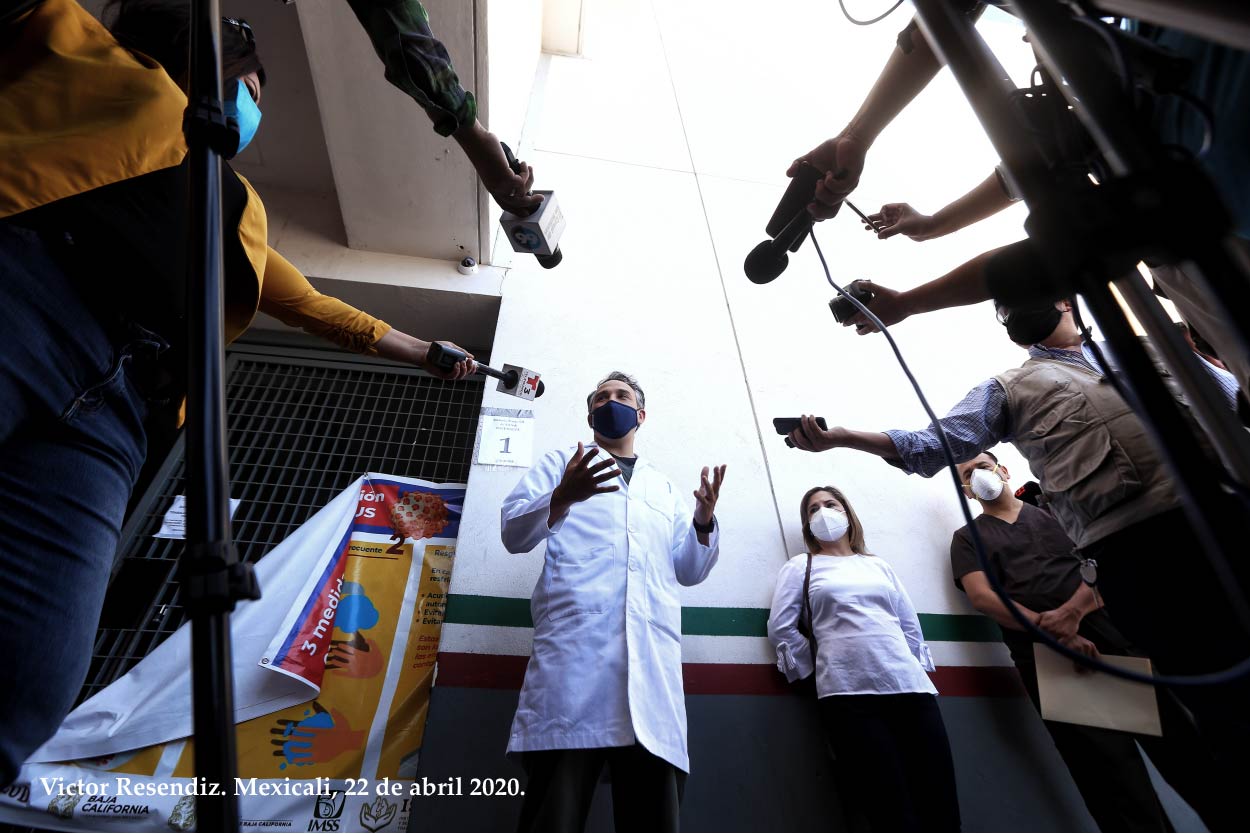home » Mexico
Articles about "Mexico"
Temáticas
Vol 8 No 15 (2025)

Routes, dynamics and responses to migration: from the Darien to Tapachula
- Alberto Hernandez Hernandez
- Carlos S. Ibarra
Mobility and migration are phenomena inherent to the history of humanity, but in the contemporary context they present themselves with a complexity and diversity of dimensions that often challenge the analytical capacities of the social sciences. The main objective of this dossier is to contribute to the critical analysis of the routes, experiences and networks that shape migratory mobility in the region.
Realidades socioculturales
Vol 7 No 14 (2024)

Dancing for the saints in the time of covid-19: responses to the 2020 confinement in central Mexico.
- David Robichaux
- Jorge Martínez Galván
- Manuel Moreno Carvallo
During religious festivals in the regions of Teotihuacán and Texcoco, northeast of Mexico City, people "dance for the saint," often to fulfill a promise made in a plea for healing or in gratitude for a favor received. Based on fieldwork conducted between 2011 and 2019, and on online interviews and monitoring of Facebook posts in 2020 and early 2021, in this article we explore the impact of the coronavirus on devotional dances performed in the context of religious festivals. In particular, we examine cases of new practices adopted during confinement. Drawing on Jeremy Stolow's (2005) concept of "religions as media" we show how a combination of digital and face-to-face media made it possible for local Catholic communities to maintain the relationship characterized by the do ut des principle with their patron saint during the pandemic, "albeit in a different way." We conclude by raising several questions regarding the future of devotional dances and religious festivals in these regions as we enter the second year of restrictions to mitigate the effects of covid-19.
Realidades socioculturales
Vol 7 No 13 (2024)

The search. Following metaphorical traces in an urban margin.
- Isaac vargas
Former Mexican President Felipe Calderón launched the war on drugs in 2006 as a strategy to dismantle vast drug trafficking networks. That war has cost the lives of thousands of people, many of whom are buried in mass graves. By focusing on a single day in the search for bodies, this ethnography describes and analyzes one of the brutal aftereffects of this security strategy. One key topic is the different ways in which actors stake out the rights of the lifeless bodies in these graves, from the mothers who dig into the earth to find treasures to the state apparatus that attempts to control the process.
Entrevistas
Vol 7 No 13 (2024)

The horizons of universality: Serge Gruzinski's research and perspective.
Interview with
- Arturo Reynoso
- Serge Gruzinski
What benefits, in the end, has globalization offered to one part of the world as well as another? What are the risks of the interaction of diverse societies? How can we understand over time the different "colonizations" in history, not only that of the New World, but also those that had already occurred in other parts of the planet? Complete interview with one of the most outstanding experts on the process of globalization and the history of Mexico.
Realidades socioculturales
Vol 6 No 12 (2023)
Normalizing the Revolution: Teachers and Students in Guerrero’s Universidad Pueblo
- Ana Lilia Nieto
- Rafael Alarcón Medina
Keywords: common space of experience, Guerrero, Mexico, normalistas, Universidad Pueblo.
This work analyzes the political-educational project of the Universidad Pueblo in Guerrero state during the 1970s. Using the ideas of Walter Benjamin and Reinhart Koselleck, we argue that this project can be understood as a common space of experience articulated through political ideas, educational practices, and student movements in the recollections of professors and students. We suggest that the diverse layers of historical experience of teacher-training professors is a catalyst sparking off today, giving origin to one of the most contradictory and interesting practices in popular higher education in Mexico in the 20th century. This research is supported by in-depth interviews in 2018 and 2019 in Acapulco and Chilpancingo in Guerrero state.
Realidades socioculturales
Vol 6 No 11 (2023)

"They are spraying the coronavirus". Of conspiracy rumors in social networks and their political uses in Mexico.
- Aldo Cicardi Gonzalez
- Margarita Zires
In this article we examine a rumor that claimed that governmental sanitization measures against the coronavirus are actually strategies to infect the population and eliminate it. This rumor circulated in various regions of Mexico, generating multiple community protests. This study separates itself from an approach that condemns rumor and conspiracy theories for being false, and takes into account that these phenomena help provide an understanding of what is considered plausible or not in a certain context. We present the versions that circulated in San Antonio de la Cal, Oaxaca, as well as narrative elements that confer plausibility and implausibility. The study is based primarily on an analysis of conversations generated on Facebook and personal interviews. It shows that the rumor was connected to conspiracy narratives and local accounts that discussed a lack of confidence in the authorities. Furthermore, its political use by groups opposing the authorities is examined.
EncArtes multimedia
Vol 5 No 10 (2022)
Altars for the Dead: The Changing Heritage of a Mexican Tradition
Discrepancias
Vol 4 No 8 (2021)

Pandemic, Year 2. Different Experiences, Shared Dilemmas and Multiple Reflections from Medical Anthropology Around Covid 19
- Mark Nichter
- Rosa Maria Osorio
- Sahra Gibbon
- moderator Lina Rosa Berrio
- moderator Paola Maria Sesia
We have invited three specialists from the field of medical anthropology to reflect on their respective experiences and knowledge of Mexico, Great Britain, the United States and India, all of them countries deeply affected by the pandemic, even if in very different ways, and whose management of the pandemic has been oriented in different directions. This allows us to contrast the diversity of official responses to the health and economic crisis.
Temáticas
Vol 4 No 8 (2021)

Construction of Romantic Love, Ideals of Couples and Gender Relations from the Lyrics of Norteña Music and Banda Sinaloense
- Ana Isabel Sánchez Osuna
- César Jesús Burgos Dávila
- Mariangel Estefania Urrecha Arce
Popular music constructs cultural narratives about romantic love, makes visible meanings of being a man and a woman, and practices related to gender violence. In this article we analyze the construction of romantic love as well as couple ideals in the lyrics of Sinaloa norteña and banda music. We conducted a thematic content analysis of 29 romantic ballads. We present the results in the categories of couple search, daily coexistence, eroticism, and separation from the couple. We conclude that myths and beliefs about romantic love are disseminated in the lyrics of the songs. These meanings recreate roles and interactions established by gender mandates, and crystallize conditions of violence and inequality between men and women.
Coloquios interdisciplinarios
Vol 3 Num 6 (2020)
Commentary to the colloquium "The Evangelical People: Hegemonic Construction, Minority Disputes and Conservative Reaction" by - Joanildo Burity
― Go to main text
Populism and religion in Brazil and Mexico. A brief reflection
- Alberto Javier Olvera Rivera
Keywords: Brazil, Mexico, Pentecostalism, populism, people.
Se analyze the relationship between populism, religion and politics, both on a theoretical level and in the cases of Brazil and Mexico. It begins with a critique of Joanildo Burity's article on "the Pentecostal people" in Brazil and the relevance of using Laclau's theory of populism to explain this phenomenon. The same arguments are then used to analyze, as a contrast, contemporary Mexican populism, embodied in President Andrés Manuel López Obrador, highlighting its religious background.






